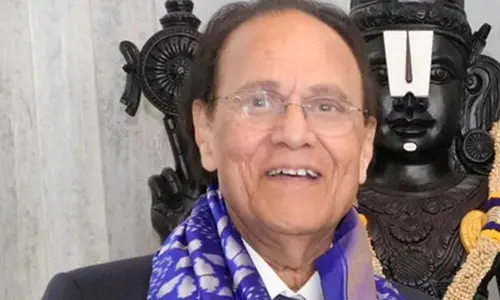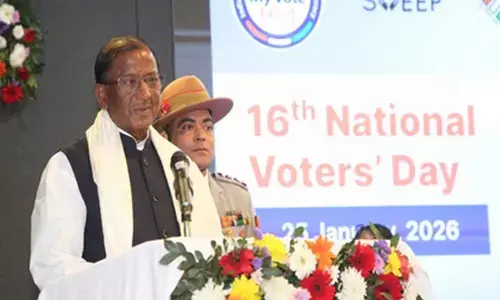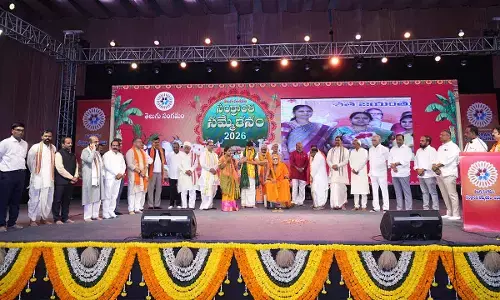POCSO Act on crime against children doesn't picture reality

The number of cases under the Protection of Children from Sexual Offences (POCSO) Act is on the rise but the data procured under it is not "an accurate picture of reality" while convictions under it are a mere 20 per cent.
The number of cases under the Protection of Children from Sexual Offences (POCSO) Act is on the rise but the data procured under it is not "an accurate picture of reality" while convictions under it are a mere 20 per cent.
It is a relatively new law and is "still evolving", says author Arita Sarkar, whose book "Kidnapped" probes the gruesome abductions and killings of over 10 children in the recent past.
"The much-needed POCSO Act, which came in 2012, safeguards the interests of children who have long-needed protection from sexual offences.... The rate of conviction, however, remains low.
Considering New Delhi's numbers, between 2014-2016, the rate of conviction of POCSO cases was below 20 per cent and majority of cases ended in acquittal. Even so, it is a relatively new law and it's still evolving," Sarkar told IANS in an interview.
However, the data gleaned from the cases registered under the act "is not an accurate picture of reality.
In India, people are generally unwilling to get involved with the police, and as a result, many cases go unreported", Sarkar, who since 2011 has been a reporter at The Hindu, Mumbai Mirror, Indian Express and Mid-Day (all in Mumbai), writes in the book.
She quotes a senior officer of the National Crime Records Bureau (NCRB) as saying: "Due to the social stigma that exists in our society, people don't want to be involved in the lengthy process of registering a complaint."
As helpful as the NCRB records are, "there are several flaws the administration has not been able to address till date". "In fact, at the beginning of every annual report, there is a disclaimer that says the NCRB is not responsible for the authenticity of the data since it is only compiled and collated as provided by the states," writes Sarkar.
"While looking for case studies, I came across many interesting possibilities. Apart from cases that involved ransom, some were related to human trafficking, extortion gangs while others involved the mafia.
I realised that there is a wide variety of kidnapping cases out there and I wanted to cover one type of cases in detail. Given my interest in cases involving children as victims, I decided to focus on cases where children had been kidnapped since they are the most vulnerable," Sarkar said in the interview.
It took Sarkar a little over a year to put all the cases together. Setting up the interviews with the relevant people and meeting them all was the bulk of the work. Some needed more convincing than others but eventually everyone "graciously" shared their bits, she said.
"The travel was an exciting experience, especially navigating through cities I had never visited before. During my stay in Gujarat, I travelled 140 km every day in a local bus between Ahmedabad and Nadiad to meet the people I had to interview. After the first day, the long journey became a part of my daily routine.
"I met a lot of interesting people who helped me along the way and had many memorable experiences including the time someone snatched my phone from my hand when I was travelling in an auto-rickshaw in New Delhi.
For several seconds, I watched the man running away with all the valuable details of my contacts before I chased him and managed to get my phone back. Important lessons were learnt through all of this," Sarkar explained.
How does she see the roadmap ahead? "I have learnt a tremendous amount about reporting as well as writing in these past couple of years and I hope to use these lessons while working on other investigative stories in future.
I do feel that I may have another book in me and I'll keep an eye out for other issues that I can focus on next," Sarkar said. "Kidnapped" has been published by Penguin Random House.














